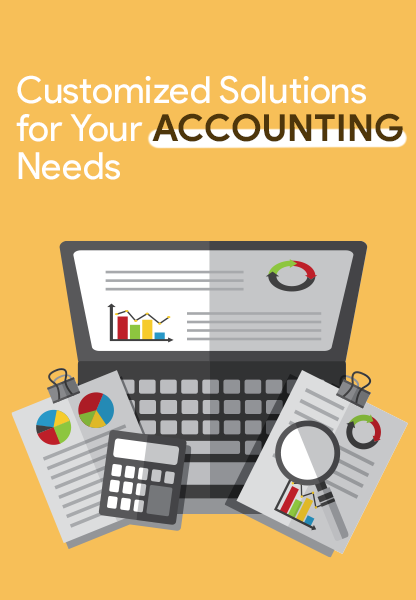
Property Maintenance: A Tenant Guide To DIY 2025
Are you a tenant who loves their home? Well, if you plan to stay in the property for an extended period, it's essential to ensure that your landlord shares the same sentiment. Landlords who do not have a positive experience with you as a tenant are unlikely to renew your lease or may even consider a substantial annual rent increase. To help you with property maintenance, property management software has the efficiency to handle the space chaos.
If you are not inclined to a long-term rental commitment, there are straightforward guidelines to follow. In addition to the obvious rule of "do not intentionally damage the property," it's also crucial to refrain from making significant alterations without obtaining permission from the landlord. It's possible that your landlord manages multiple rental properties, so taking care of minor repairs or maintenance matters on your own without inconveniencing your landlord can make a meaningful difference. Property management efficiency statistics indicate that 80% of property managers coordinate maintenance and repairs in addition to handling rent collection.
Understanding the Lease Agreement
Before you even move into your rental property, it's imperative to thoroughly read and comprehend your lease agreement. The lease agreement is a legally binding contract that delineates your rights and obligations as a tenant. It basically includes provisions related to property maintenance, specifying who is responsible for particular tasks and outlining procedures for addressing repair needs.
Routine Cleaning
Sustaining a clean living environment is a fundamental aspect of maintaining a rental property. Regular cleaning helps prevent the accumulation of dirt, dust, and grime, which can lead to various issues such as pest infestations and property deterioration. Tenants are expected to handle cleaning tasks like vacuuming, sweeping, mopping, and dishwashing.
Reporting Maintenance Issues
One of the most critical responsibilities for tenants is promptly reporting any maintenance issues to the landlord or property management. Whether it's a leaky faucet, a broken window, a malfunctioning HVAC system, or any other problem affecting the habitability of the property, it's vital to communicate these matters in writing to create a record of the request. Provide specific details about the issue, including its location and any potential safety concerns.
Exclusive - Upto 50% Off
Tenant-Initiated Repairs
In certain situations, tenants may have the option or even be encouraged to undertake minor repairs or maintenance tasks themselves. These tasks could include activities like changing light bulbs, replacing air filters, or unclogging drains. However, it is crucial to first review the terms of the lease agreement and consult with the landlord or property manager to ensure compliance with its provisions before attempting any repairs.
Pest Control
Dealing with pest infestations can be troublesome and may lead to property damage. While landlords generally hold responsibility for addressing pest control issues, tenants also play a role. The initial step in preventing pests is to maintain a clean living environment. If you detect any signs of pests, it's important to promptly report them to your landlord so that appropriate action can be taken.
Lawn and Garden Maintenance
If your rental property includes a yard or garden, it is essential to clarify with your landlord who is responsible for its upkeep. Some landlords incorporate yard care as part of the lease agreement, while others may expect tenants to manage the outdoor space. Regular tasks like mowing, weeding, and watering may be typical requirements.
Seasonal Maintenance
Different seasons present diverse maintenance challenges. During the winter, it's crucial to keep walkways clear of snow and ice to prevent accidents. In the summer, air conditioning units should be cleaned, and filters replaced to ensure they function correctly. Recognizing and addressing these seasonal maintenance tasks is indispensable for tenant comfort and safety. You get reminders for interval or regular maintenance through real estate management software. Because of this, you don’t get hard work of memorizing the calendar for your work.
Smoke and Carbon Monoxide Detectors
Smoke detectors and carbon monoxide detectors are vital for tenant safety. Regularly testing these devices is necessary to confirm their functionality. If you observe that a detector is not operating correctly, promptly report it to your landlord. In some instances, you may be responsible for tasks such as battery replacement or minor maintenance related to these devices.
Mould and Mildew Prevention
Mould and mildew can present health hazards and damage property. To prevent these issues, maintaining adequate ventilation and a dry property environment is essential. If you detect any indications of mould or mildew, promptly report it to your landlord. It is the landlord's responsibility to address and resolve these problems.
Plumbing Maintenance
Tenants should exercise care in managing what goes down the drain. It's advisable to refrain from flushing anything except toilet paper down the toilet and to be cautious about disposing of grease or food scraps in the kitchen sink, as these actions can lead to clogs. Additionally, it's crucial to report any plumbing issues, such as leaks, clogs, or faulty fixtures, so that you can repair them on time.
Appliance Maintenance
Landlord-provided appliances should be used with care. Adhere to the manufacturer's instructions for operating and cleaning these appliances. If any appliance experiences a malfunction, promptly report it to ensure it can be repaired or replaced as necessary. Avoid attempting to repair appliances on your own unless authorized by the landlord. Monitoring maintenance becomes easy with property management software.
Security Measures
Property security maintenance is a shared responsibility between the tenant and the landlord. Confirm that all locks on doors and windows are in proper working condition. If you observe any security issues, notify your landlord immediately so they can address them without delay.
Respect for Common Areas
If your rental property encompasses communal areas like a lobby, hallway, laundry room, or shared outdoor spaces, show consideration to your neighbors and the property. Dispose of trash appropriately, maintain cleanliness in common areas, and adhere to any specific rules or guidelines stipulated by the landlord or property management.
Understanding Emergency Procedures
In the event of emergencies, such as a fire or a burst pipe, it is crucial for tenants to be familiar with the locations of emergency exits, fire extinguishers, and the procedure for shutting off utilities like gas and water. A clear understanding of these procedures can save lives and mitigate further property damage.
Tenant Insurance
While the landlord is responsible for ensuring the property's structure, tenants should seriously consider obtaining their own renter's insurance policy. Renter's insurance can offer coverage for personal belongings and liability protection, which can be invaluable in the event of accidents or unexpected incidents. Property management software keeps all the tracks of property insurance which eases the issue afterward.
Conclusion
Responsible tenancy involves more than simply paying rent on time. Actively participating in rental property maintenance contributes to a safe, comfortable, and harmonious living environment for all parties involved. By comprehending your responsibilities, promptly reporting maintenance issues, and taking preventive actions, you play a role in extending the property's lifespan and fostering a positive landlord-tenant relationship. Ultimately, a well-maintained rental property benefits both landlords and tenants, establishing a mutually advantageous situation for everyone involved.












